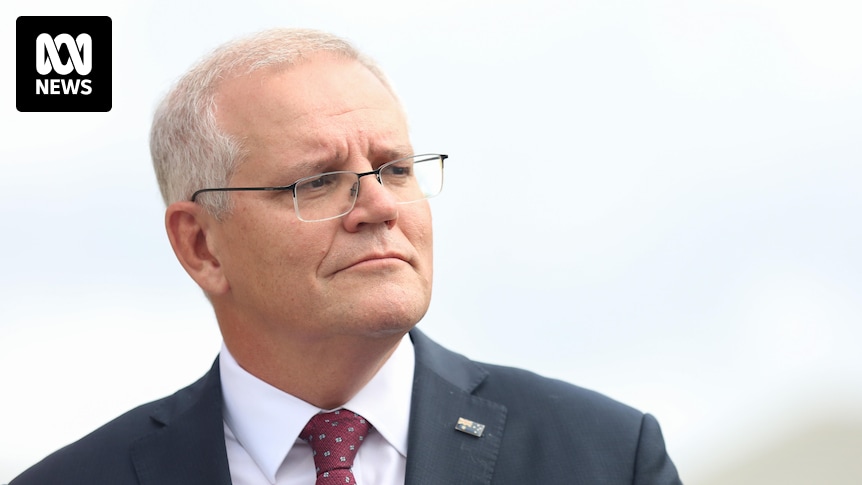Former prime minister Scott Morrison is set to appear before a committee of the US Congress as its leaders lobby the White House to support the under-review AUKUS pact.
The select committee, which is examining threats posed by China, has written to US Defense Secretary Pete Hegseth to push him to back the trilateral pact as the Pentagon considers its future.
The pact with the US and the UK, under which Australia would procure nuclear-powered submarines, is being reviewed to ensure it meets “common sense, America First criteria”, according to the White House.
The Pentagon official leading the review, Elbridge Colby, has in the past expressed scepticism about AUKUS amid concerns about America’s consistent failures to meet its own shipbuilding targets.
In their letter, the select committee’s Republican chairman, John Moolenaar, and its most senior Democrat, Raja Krishnamoorthi, wrote that China’s “rapid expansion of its nuclear, conventional, cyber, and space capabilities pose a grave concern for the United States and our like-minded allies and partners”.
“AUKUS has received strong bipartisan support from Congress for a reason,” they wrote. “We are stronger together under the AUKUS framework.”
The ‘pillars’ of AUKUS
- Pillar I: Submarines – providing Australia with a fleet of nuclear-powered submarines. Australia would buy at least three Virginia class subs from the US in the 2030s, and later build five of its own, probably in Adelaide.
- Pillar II: Advanced capabilities – developing and providing joint advanced military capabilities in areas including undersea, quantum technologies, AI, advanced cyber, hypersonic weapons, electronic warfare, innovation and information sharing.
They pointed to the Chinese navy’s deployment of aircraft carriers into the western Pacific in June, and its live-fire exercises in the Tasman Sea in February as troubling examples of Beijing “project[ing] blue-water capabilities at increasing distances from its shores”.
“This attempt to project power as far south as New Zealand’s front door highlights the importance of AUKUS in cementing ties to longstanding allies like Australia, as well as advancing vital undersea capabilities that will be central to deterrence,” they wrote.
Mr Morrison, who announced the AUKUS pact with then-leaders Joe Biden and Boris Johnson in 2021, has previously spoken directly to Donald Trump about AUKUS. In June, he told the ABC he had “never had concerns” about the US president’s commitment to the pact.
“I mean, there’s a review underway, and I think he’ll take notice of what Bridge Colby says, and I think we need to engage with that and make the case again,” he said.
He later wrote a Wall Street Journal op-ed describing the review as a chance to “refocus and recalibrate” and advocating for AUKUS’s expansion to outer-space security. “It’s time for AUKUS to grow, and Mr Trump is the right person for the job,” he wrote.
The Australian government has also expressed confidence in the pact’s future, framing the review as a standard process for an incoming government and rejecting suggestions a “plan B” is needed.
But American concerns about Australia’s defence budget remain a possible sticking point.
Pete Hegseth has been pushing Australia to spend more on defence. (Reuters: Kevin Lamarque)
Mr Hegseth has urged Australia to lift defence spending to 3.5 per cent of GDP, from its current level of about 2 per cent. Prime Minister Anthony Albanese has pushed back, saying Australia will determine its own defence priorities.
The opposition has been pressuring Mr Albanese to prioritise a meeting with Mr Trump to press the case for AUKUS. Plans for a meeting in May fell through.
Multiple congressional committee chairs have also recently written to Mr Hegseth in support of AUKUS, pointing to its benefits for the US, including a $4.5 billion Australian investment in America’s submarine-building capabilities.
The Australian government made an initial payment of almost $800 million earlier this year. In total, the submarine deal is expected to cost Australia up to $368 billion over several decades.
Mr Morrison is one of two witnesses set to appear at Wednesday’s committee hearing, which is focused on strategies to counter China’s “economic coercion against democracies”. The other is former US ambassador to Japan, Rahm Emanuel.
